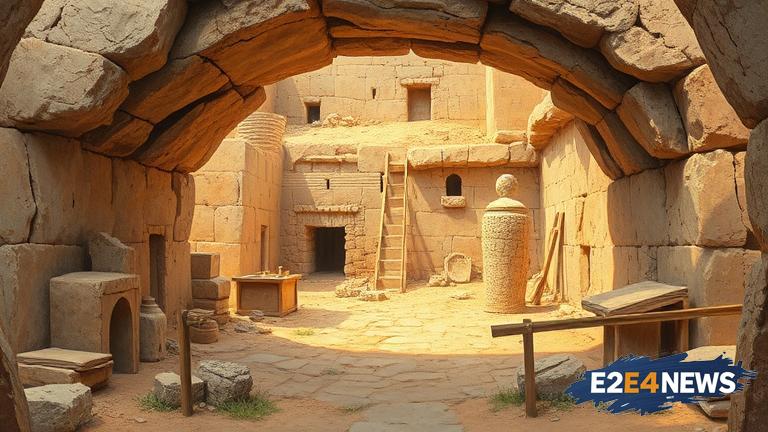Israel, a country steeped in history and culture, has been the site of numerous archaeological discoveries in recent years. These findings have provided valuable insights into the lives of ancient civilizations, including the Jews, Christians, and Muslims. One of the most significant discoveries was the unearthing of a 2,000-year-old synagogue in the Galilee region. This ancient synagogue, dated to the Second Temple period, is one of the oldest and most well-preserved in the country. The excavation, led by a team of Israeli archaeologists, revealed a stunning mosaic floor, intricate stone carvings, and a unique architectural design. The discovery has sparked widespread interest among scholars and historians, who believe it could provide important clues about the development of Judaism and the history of the region. Another significant finding was the discovery of a ancient Jewish village, hidden deep in the Judean hills. The village, which dates back to the 1st century CE, features a network of underground tunnels, hidden chambers, and ancient artifacts. The excavation has provided a unique glimpse into the daily lives of ancient Jews, including their agricultural practices, trade networks, and social structures. In addition to these discoveries, archaeologists have also uncovered a series of ancient tombs, containing the remains of prominent Jewish figures from the Second Temple period. These tombs, adorned with intricate carvings and inscriptions, have provided valuable insights into the funerary practices and burial customs of ancient Jews. The discoveries have also sparked controversy, with some scholars questioning the authenticity and significance of the findings. Despite these debates, the excavations have undoubtedly shed new light on the rich history and cultural heritage of Israel. The country’s unique geography, with its diverse landscapes and climates, has made it an attractive location for archaeological research. From the snow-capped mountains of the Golan Heights to the scorching deserts of the Negev, Israel is home to a wide range of archaeological sites, each with its own unique story to tell. The Israeli government has invested heavily in archaeological research, recognizing the importance of preserving the country’s cultural heritage. This investment has led to the establishment of numerous archaeological institutes, museums, and research centers, which have played a crucial role in promoting the study and preservation of Israel’s ancient history. As research continues to uncover the secrets of Israel’s past, it is clear that the country’s rich cultural heritage will remain an important part of its identity. With its unique blend of history, culture, and natural beauty, Israel is a fascinating destination for tourists, scholars, and adventurers alike. Whether exploring the ancient ruins of Jerusalem, hiking through the Galilee hills, or simply experiencing the vibrant culture of Tel Aviv, visitors to Israel are sure to be inspired by the country’s incredible history and natural beauty. In conclusion, the recent archaeological discoveries in Israel have provided a unique glimpse into the country’s rich history and cultural heritage. From the ancient synagogues of the Galilee to the hidden tombs of the Judean hills, these findings have shed new light on the lives of ancient civilizations and the development of Judaism. As research continues to uncover the secrets of Israel’s past, it is clear that the country’s cultural heritage will remain an important part of its identity, inspiring generations to come.
